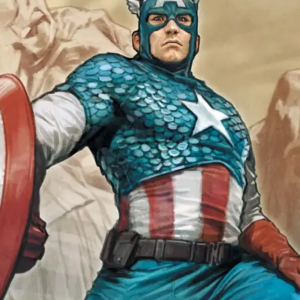Lit Hub Weekly: October 19 - 23, 2020
THE BEST OF THE LITERARY INTERNET

- “I want to try to think about Cy Twombly through the poems of Catullus. These two spirits seem to me somehow in tune.” The Anne Carson essay we need (if not deserve). | Lit Hub Criticism
- “Alphabetical order, when it was used, was the independent inspiration of individuals rather than the bureaucratic norm.” On the origins of a commonly used alphabet. | Lit Hub History
- “Plath seems to be saying that nature will eventually revolt against humanity’s relentless incursion.” Sylvia Plath… nature writer? | Lit Hub Nature
- Sigrid Nunez on Nicole Krauss’s To Be a Man, Tracy O’Neill on Don DeLillo’s The Silence, and more of the Reviews You Need To Read This Week. | Book Marks
- Rebecca at eighty: Christina Lane looks back on Joan Harrison, the savvy screenwriter behind Hitchcock’s classic adaptation. | CrimeReads
- On Martin Amis’s Inside Story, a “not loosely but fairly strictly autobiographical” novel. | The New Yorker
- Marina Magloire on a little-known part of Lucille Clifton’s legacy: her relationship to the spirit world. | The Paris Review
- New biographies of Malcolm X give fresh perspective on his life—and the autobiography that was published just after his assassination. | Los Angeles Times
- “We can show up in a place where we aren’t supposed to be and we can grow, and we can make it more beautiful.” Kao Kalia Yang on writing the stories of refugees. | MPR News
- “Talking about why something is bad can sometimes be far more entertaining and illuminating than the usual.” The case for having students read bad books. | Post Bulletin
- “The idea of being a poet is a calling, it’s a vocation. For me, so is thinking and talking about black culture, and those two things are intimately related.” A conversation with Kevin Young. | NPR
- “There’s a calm to being in a theater like that, particularly for anyone who grew up near malls. It’s very hard to have an existential crisis on an escalator.” Sloane Crosley on Yaddo, writing in a pandemic, and getting inspiration at the multiplex. | Criterion
- “I probably made it sound much worse than it really was.” Viet Thanh Nguyen interviews Adrian Tomine. | The Paris Review
- Which books have the most disappointing endings—and why do they infuriate us? An investigation. | Washington Post
- John Banville’s newest novel gives the sense that he has “apprenticed himself to his own earlier self,” Paul Franz writes. | The Atlantic
- A profile of Karla Cornejo Villavicencio, the first undocumented person to receive a National Book Award nomination. | The New York Times
- “You become as intimate as you can with the life and work of this person… But there is always going to be a gap.” Hermione Lee on writing biographies. | New Statesman
- Jon Baskin and Anastasia Berg ask what will happen to the study of the humanities as the pandemic sends universities into crisis. | The New York Times
- A handful of writers and scholars are on a mission: to finally give female ghost-story writers their due. | The Guardian
- Lewis Carroll, Eudora Welty, Wright Morris, Orhan Pamuk: On the authors who also pursued artistic photography. | Boston Globe
Also on Lit Hub:
Marlon James on the myth-making power of Neil Gaiman’s fiction • Molly Spencer on carving out that most precious of writerly resources: time • Carlos Lozada on the recent history of the Republican Party • Todd Gitlin on the central act of democracy • On the unexpected hopefulness of Don DeLillo’s latest novel • Cory Doctorow on the difference between writing YA fiction and his latest “grown” novel • Where do reading lists come from? • When a young Malcolm X brought the Nation of Islam’s teachings to a working-class community • Daniel Tam-Claiborne on Asian American solidarity in a post-Covid America • Natalka Burian on the medieval manuscript that led her to her latest novel • A look back at NYC nightlife in the 1990s • Czesław Miłosz confronts the dark and immutable order of the world • Stella Dadzie on the history of public revolt and private resistance in the West Indies • Megan Marshall on discovering her partner’s poetry after he died • Nikki Giovanni: “We need poetry because it brings the light of love” • Kanako Nishi on reading The Bluest Eye • A brief history of the political essay • Craig Santos Perez on the origins of his course in ecopoetry • Lauren D. Woods makes the case against feedback • Sharanya Deepak on the many landscapes of Kashmiri writing • K-Ming Chang on the ghosts in her family • Robert Duncan on the event that brought him back to writing after 30 years • A graphic novel on life in Lebanon before the Beirut explosion • Hiroko Oyamada wrote her first book, The Factory, in a factory • Poems by Phillis Wheatley, Paul Louis Dunbar, Claude McKay, Angelina Weld Grimké, Ai, and Saeed Jones from Kevin Young’s new anthology of African American poetry
Best of Book Marks:
New on CrimeReads:
The 50 best, worst, and strangest Draculas of all-time, ranked, from Olivia Rutigliano • Crime and the City heads to Toronto, North America’s safest city • R.V. Raman on bringing traditional mysteries to India • Check out Edward Gorey’s beautiful 1970s set designs for Dracula on Broadway • Scott Peeples considers “The Man of the Crowd” as Edgar Allan Poe’s first detective story • Rose Carlyle with 7 great thrillers that take readers to far-flung places • Avery Bishop on 5 novels that explore “mean girl” culture • emily m. danforth recommends gothic horror featuring lesbian and queer women • Daco Auffenorde on the dark legacy of a deadly train wreck • Jonathan Daniel Wells on the “kidnapping club” that terrorized Black New Yorkers in the 1830s



















